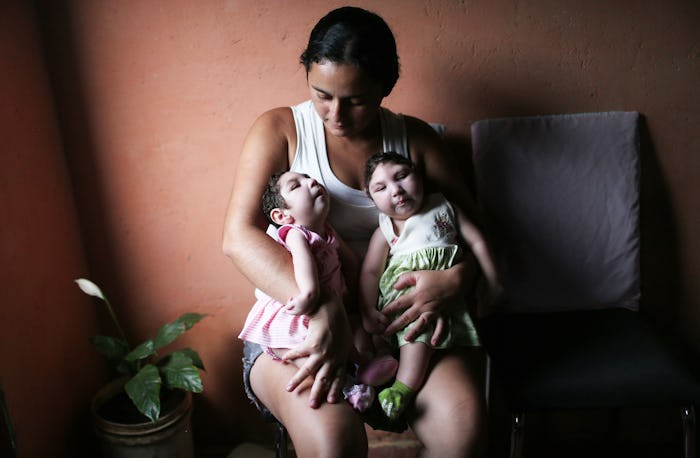News

Watch Out: Zika Isn't Over Yet
Over the past year, the devastating Zika epidemic has dominated headlines in waves of severity and we've learned an incredible amount of information about the mosquito-transmitted virus. By now, it's pretty well-known that Zika is most threatening to pregnant women who live in or have traveled to tropical regions where the virus has been known to be active, mainly Latin American countries and more recently in Texas where a locally-transmitted case was found last month. But, even though much of the United States has been able to put away the bug spray during the winter months, the Centers for Disease Control and Prevention (CDC) is warning pregnant women that the Zika threat isn't over yet and expecting mothers should still be very cautious when traveling to warm and sunny climates.
"We do want to emphasize that this will be the new normal until there’s a [Zika] vaccine. That if you're pregnant, you should not go to a place where Zika is spreading," CDC Director Tom Frieden told health-oriented news website STAT in a year-end interview on the CDC's response to Zika over the past year.
He continued, "I think there's a misconception that Zika is either over or was never a serious problem. It's a devastating problem for families and individuals."
Although Zika was first identified nearly 70 years ago, it was in May 2015 that the virus began to spread rapidly in Brazil, triggering a worldwide response of prevention efforts, research into a vaccine, and advising pregnant women not to travel to affected areas.
In January — when a link between Zika infection in pregnancy to the now well-recognized birth defect, microcephaly, had yet to be established — the CDC urged expecting mothers to avoid 13 Latin American countries as well as Puerto Rico to avoid contracting the virus.
"That may have been the single most important thing we did," Frieden said in the same interview with STAT.
Although the chances of getting infected with Zika are relatively rare and the likelihood greatly depends on where you live, the aggressive mosquito has the ability to be very dangerous for expecting moms and their unborn babies.
"It’s obviously a rare event, but the problem is it’s a devastating event," Frieden told STAT. "It’s a life-changing event."
For reference, according to PBS, health officials in the United States have recorded "39 pregnancies affected by Zika: 34 babies have been born with Zika-induced birth defects, and in five cases, birth defects are known to have been present but the pregnancy ended with either a miscarriage, a stillbirth or a termination."
According to STAT, CDC scientists say that these numbers may be an underestimate because every pregnancy — like those that end in abortion — is hard to track and may not have been entered in CDC's Zika pregnancy registry. Even so, the CDC's advice for pregnant women and their partners not travel to places where Zika virus is actively spreading still stands and should be considered whenever travel plans are made.
Going into 2017, researchers know much more about Zika than they did a year ago. But, this latest report from the agency reinforces how devastating the virus can be and an abundance of caution should be used even when you're planning a tropical vacation that's meant to be spent relaxing and sunbathing on the beach.